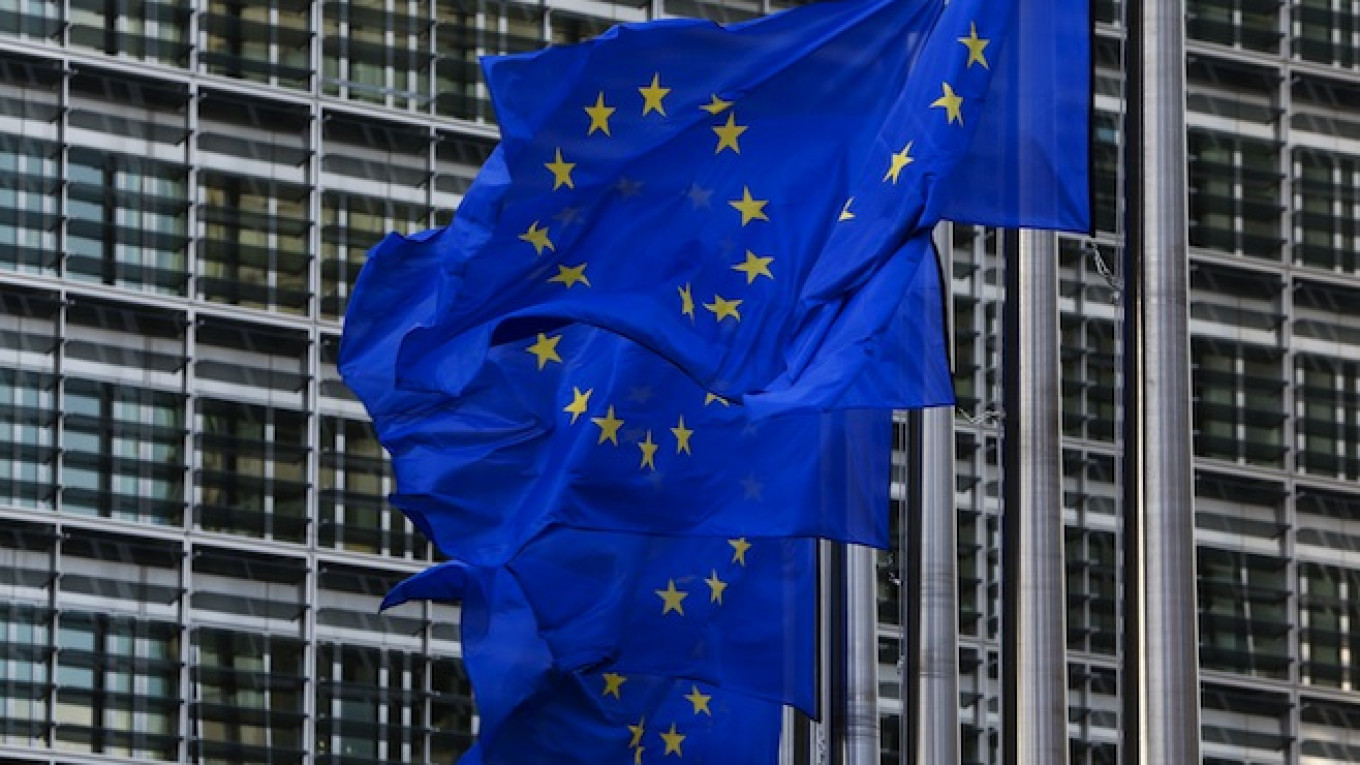The European Union has prolonged economic restrictions imposed on Russia over its role in the Ukraine crisis until Jan. 31 2017, the European Council said in a statement Friday.
In response to the move, Russian Prime Minister Dmitry Medvedev signed a decree Friday on the extension of a ban on the import of a range of food products from Western countries — Russia’s counter-measure against EU sanctions.
The ban will stay in place until Dec. 31 2017, according to a document published on the government’s website.
The anti-Russian sanctions were initially imposed by the EU for a year on July 31, 2014 in response to Russia's annexation of the Crimean peninsula from Ukraine and Russian military presence in the east of the country.
The sanctions have already been extended several times. The restrictions against Russia include a visa ban and an asset freeze on a number of Russian individuals and entities as well as various economic restrictions.
The EU links the lifting of the sanctions against Russia with a full implementation of the Minsk agreements, aimed at a peace settlement in eastern Ukraine. The agreement provides for a complete cease-fire, withdrawal of heavy weapons and the return of border control to Ukraine.
Last month, the EU also extended sanctions against Crimea.
A Message from The Moscow Times:
Dear readers,
We are facing unprecedented challenges. Russia's Prosecutor General's Office has designated The Moscow Times as an "undesirable" organization, criminalizing our work and putting our staff at risk of prosecution. This follows our earlier unjust labeling as a "foreign agent."
These actions are direct attempts to silence independent journalism in Russia. The authorities claim our work "discredits the decisions of the Russian leadership." We see things differently: we strive to provide accurate, unbiased reporting on Russia.
We, the journalists of The Moscow Times, refuse to be silenced. But to continue our work, we need your help.
Your support, no matter how small, makes a world of difference. If you can, please support us monthly starting from just $2. It's quick to set up, and every contribution makes a significant impact.
By supporting The Moscow Times, you're defending open, independent journalism in the face of repression. Thank you for standing with us.
Remind me later.


